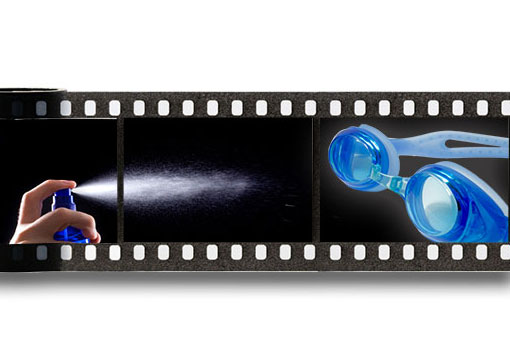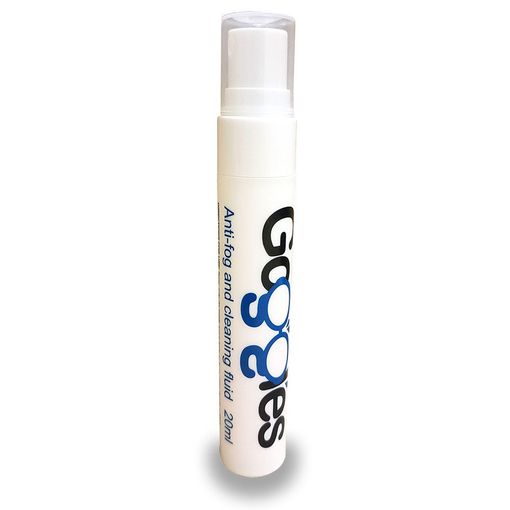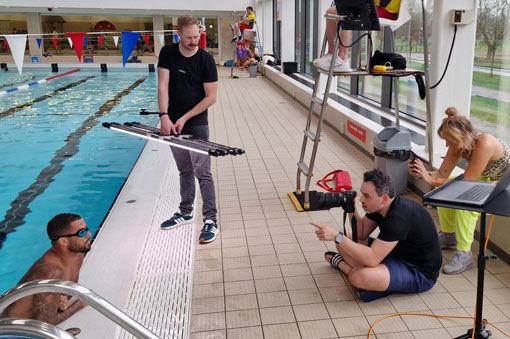Swimming goggles fog up because of condensation forming on the inside of the lenses. This is either perspiration or water vapour from your skin. Therefore, it is likely to be worse if you are exerting yourself.
Most swimming goggles will be sold as ‘anti-fog’ treated which means they have a silicone film applied to the inside of the goggles. This helps prevent water ‘sticking’ to the goggles, instead it runs off the lenses, thus preventing fogging.

However, goggles can still fog up for a variety of reasons.
- The anti-fog treatments become less effective over time.
- The anti-fog treatment has come off.
- A lot of moisture is being produced so the anti-fog cannot handle it all.
Obviously you can’t stop yourself from generating heat and water vapour, so how do you stop/ minimise the problem of goggles fogging up?
- Put the goggles on while they and you are dry.
Often difficult to achieve but this can minimise any extra moisture between you and the inside of the goggles. - Spit on the inside of the goggles.
Slightly unsavoury perhaps but many people find that this works. - Use an anti-fog spray
These sprays contain a hydro-phobic solution which repels water from the goggle lens causing it to run off rather than form a mist/fog. They generally have to be used before each swim, sprayed onto the inner surface, very gently distributed across the lens surface with the pad of your fingertip, rinsed in the pool or under a tap and off you go.
Personally, I find the anti-fog in a new goggle works well but generally for only a matter of a few weeks/months. After that I use an anti-fog spray before every swim and find that solves the problem.
Watch a demonstration showing how to apply anti-fog here:
Featured products
Related Articles
Butterflies Eyecare and Prescription Swimming Goggles have won Feefo’s very exclusive accolade, the Feefo 10 Year of Excellence Award, for dedication and consistence in customer service - ten years in a row.
On the way to the train station recently to attend the e-commerce awards in London, James and I heard an interesting radio discussion.
When a new swimming season comes around there is often a need to focus and with Sutton Swimwear® we want to help you Deter the Blur®.
So we hit the pool to create some new lifestyle and action images.
It's that time of year when we all look to make New Year's resolutions, but instead of something for the New Year, we prefer a plan for the year!
Expert advice
“As an optometrist and regular swimmer, I enjoy sourcing a wide range of goggles and masks to help you see well in the pool, sea or spa.”
James Sutton (MCOptom)
Founder of Prescription Swimming Goggles





